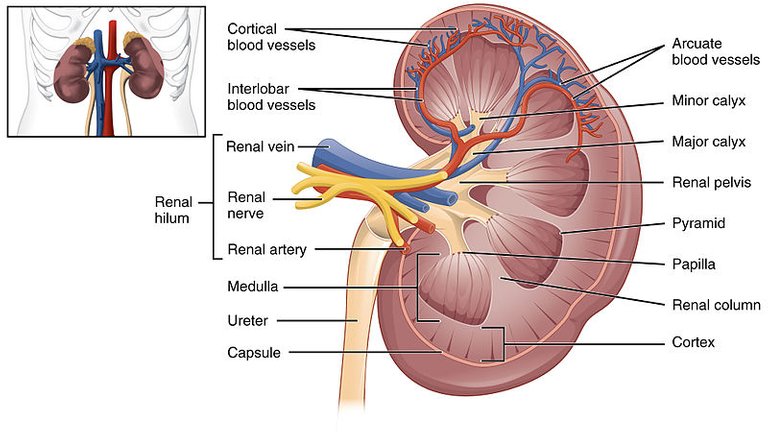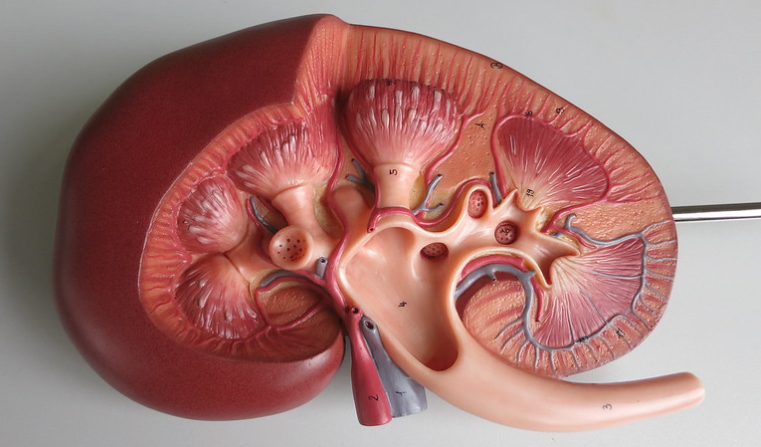Kidney Failure and the Ultimate Transplant
With the advancement in technology, human lives have become easier, more interesting, and generally more sophisticated than what they use to be. Many of the things that require great effort and stress to carry out can now be done without lifting any finger. All the aspects of human lives have been touched without any being spared.
Of particular interest in my today's post is the role that science and technological advancement have played in our nutrition. There is no doubt that our foods have also become more sophisticated in correlation with technological advancement. Many foods that will normally take hours to be cooked or manually processed can now be done in minutes. We are getting more out of ordinary foods and the wealthier you are as a human, the more sophisticated your food becomes except you are the type that loves 'living in the past'.
Unfortunately for us, what we put into our mouths plays a huge role in our overall health. With sophisticated lifestyles, the abnormalities that occasionally come with health have also become sophisticated. New pathogenic and non-pathogenic diseases keep emerging and keep scientists on their feet with sleepless nights.

The Rise of Lifestyle-related Organ Failure
Those that are conscious of the happenings in their environment will know that the incidence of organ failure has plummeted over the years. Recently, an organ trafficking syndicate was uncovered in Nigeria, one of the testaments to the fact that organ failure and organ trading business is blooming all over the world.
Not to mix it all up, organ failure can occur in many other ways that are not lifestyle/nutrition-related. However, whatever the case may be, the failure of an organ requires that such an organ is replaced in the body. An exception, however, exists with the kidney. Humans have a pair of kidneys but can effectively function with one, barring some little adjustments in general lifestyle.
Kidney Failure
The primary function of the kidney is to get rid of wastes (urine primarily) and help with water reabsorption in the body in order to maintain the balance of fluid in the body. Other functions include indirect production of red blood cells, regulation of blood pressure, and the promotion of bone health. When a kidney refuses to perform its functions irreversibly, such a kidney is said to have failed.
Like I pointed out earlier, an average human comes with two kidneys but can effectively function with one, barring a higher chance of a lifetime of mild high blood pressure, fluid retention, and proteinuria. Thus, if only one is bad out of the two kidneys, the failed one would have to be surgically removed from the body to prevent further damage to the body system. Some humans, however, are given birth to with only one kidney and as such, the single kidney performs the functions of 2 kidneys.
There are different types of kidney failure depending largely on the underlining cause. The kidney primarily filters out wastes from circulating blood when the blood gets to the kidney region. Some conditions might exist in the body that will limit the amount of blood that gets to the kidney. When adequate blood does not get to the kidney, the latter cannot carry out the function of filtering wastes from it. This is otherwise known as acute prerenal kidney failure.
Some kidney failures result from physical injury, trauma, toxin overload to the organ itself. This type of kidney failure is known as acute intrinsic failure. Other forms of kidney failure include chronic prerenal, chronic intrinsic, and chronic post-renal kidney failure.
When the kidneys of a person fail, the primary function of the kidneys would have to be artificially performed in the short run. This is known as dialysis. However, some kidney failures can be reversed if diagnosed on time and the underlining cause treated. Others might require total replacement, otherwise known as kidney transplant.
A matching donor kidney would be required for kidney transplant. This is where it gets tricky. All over the world in various hospitals, thousands of patients exist that are awaiting suitable donors. Even after getting suitable donors, a huge chance exists that the body will always reject organs that are not its own. The body's soldiers would see the new organ as a foreign intruder and will wage biological war against it. This is why someone that just went thought a kidney transplant would need to be on immunosupressive drugs.
In the long run, the immunosuppresive drugs will not be able to keep the body's immune system at bay and the body will eventually reject the transplanted kidney. This is why a transplanted kidney only lasts 10 to 12 years on the average. If you are lucky enough, perhaps 15 years. Thereafter, a person will be up for another kidney transplant again.

Final Words
The issues with kidney failure and ultimate kidney transplant shows that there is nothing like one's own kidney (s). Hence, it is very essential to take utmost care of one's kidney. Below are some of the recommended guide to maintain healthy kidneys:
- Exercise regularly to help kidney in getting rid of wastes through sweating and regular blood flow in the body.
- Watch what you eat. Excess sugar or salt intake means that pressure would be on the kidney which might lead to its failure.
- Ensure that your blood pressure is monitored and maintained within the normal range.
- Take plenty of fluid, especially water.
- Avoid smoking and alcohol as much as possible.
- Only take drugs when necessary. Avoid nsaids drugs as much as possible.
Thank you all for reading.
I always salute the courage of those people donating a kidney out of its pair. Thought like if their remaining ones get injure, what will also happen since they will be left with one, will they also get a donor? e.t.c. Regular exercise has been my habit for a while now. Thanks for this valuable treatise!
People have different motivations for donating - money, family ties, terminal illness, etc. Regular exercise in addition to watching what you put into your system will go a long way.
Thanks for your contribution to the STEMsocial community. Feel free to join us on discord to get to know the rest of us!
Please consider supporting our funding proposal, approving our witness (@stem.witness) or delegating to the @stemsocial account (for some ROI).
Please consider using the STEMsocial app app and including @stemsocial as a beneficiary to get a stronger support.
I'm glad to hear the human trafficking syndicates are being dealt with. The country is really unsafe.
I heard in Porthacourt a woman was caught with children in a cab going to an unknown location.
The children were crying in the car.
Very Interesting. I learnt that after 3 times of transplant, not transplant can be carried out on a patient with kidney failure.Is that true?